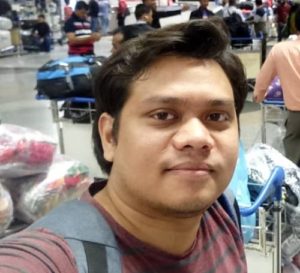Hello again from the fourth cohort of the CDT Data Analytics & Society (CDAS) program. Today we will be sharing our experience of our journey through the second semester of our time here at the CDAS (in case you missed the post about the first semester, it’s here!). We (Javiera and Mushtahid) have structured this blog post in basically two parts. In the first part, each of us will describe our favourite part(s) of this semester, while in the second part we will describe our journey through this semester from a more global perspective.
 Javiera: “My favourite part of the second semester was the internship experience with my sponsor company, the Office for National Statistics (ONS). I worked with data from the Opinions and Lifestyle Survey (OPN) which was created to understand the impact of the coronavirus (COVID-19) pandemic on British society. I collaborated with the social care team to study the impacts of COVID-19 on unpaid carers during the month of April 2021. I used the programming language R to analyse the data: the results were the basis for a publication released on the ONS website earlier this month. It was rewarding to have been involved in the project and seen it evolve from beginning to end. The internship was also an excellent way to meet and engage with the social care team at the ONS. It was interesting to learn about how a data provider like the ONS works. And although the internship was completed online, the experience felt very social. It was extremely motivating to work as part of a team after a year of little interaction with peers.”
Javiera: “My favourite part of the second semester was the internship experience with my sponsor company, the Office for National Statistics (ONS). I worked with data from the Opinions and Lifestyle Survey (OPN) which was created to understand the impact of the coronavirus (COVID-19) pandemic on British society. I collaborated with the social care team to study the impacts of COVID-19 on unpaid carers during the month of April 2021. I used the programming language R to analyse the data: the results were the basis for a publication released on the ONS website earlier this month. It was rewarding to have been involved in the project and seen it evolve from beginning to end. The internship was also an excellent way to meet and engage with the social care team at the ONS. It was interesting to learn about how a data provider like the ONS works. And although the internship was completed online, the experience felt very social. It was extremely motivating to work as part of a team after a year of little interaction with peers.”
 Mushtahid: “My favourite part of the second semester was most probably when I learned about neural networks and their vast array of applications in solving real-life problems. Neural networks could play a huge role in my PhD – which at this stage is mostly focused on measuring physical activity and other wellbeing behaviours of people in urban spaces using digital tools. Therefore, I could certainly see myself using neural networks to analyse video recordings to detect people and recognise their different physical activities in urban areas. In fact, my internship this semester involved working with a dataset provided by a tech company that specialises in building real-time object detection systems via deep learning to capture different road users such as pedestrians and cyclists. The internship was certainly an enriching experience as it involved me collaborating with my industry partner Buro Happold and the tech company. Similar to Javiera’s experience, my internship felt social despite it being done entirely online.”
Mushtahid: “My favourite part of the second semester was most probably when I learned about neural networks and their vast array of applications in solving real-life problems. Neural networks could play a huge role in my PhD – which at this stage is mostly focused on measuring physical activity and other wellbeing behaviours of people in urban spaces using digital tools. Therefore, I could certainly see myself using neural networks to analyse video recordings to detect people and recognise their different physical activities in urban areas. In fact, my internship this semester involved working with a dataset provided by a tech company that specialises in building real-time object detection systems via deep learning to capture different road users such as pedestrians and cyclists. The internship was certainly an enriching experience as it involved me collaborating with my industry partner Buro Happold and the tech company. Similar to Javiera’s experience, my internship felt social despite it being done entirely online.”
During this semester, we also learned about the importance and application of metadata, privacy, confidentiality and anonymisation in today’s data-driven world through the module “Understanding Data and its Environment” taught by Prof Mark Elliot and Dr Nuno Pinto at the University of Manchester. In the same module, we were taught about data pre-processing by Dr Pradyumn Shukla and were tasked to pre-process a dataset and subsequently build a predictive model to solve a real-life business problem – which enabled us to gain valuable insight on how to properly prepare datasets so that they are ready for analysis.
Currently, we are going through our final module for this semester – “Social Analytics & Visualisation” taught by Dr Mark Taylor, Prof Paul Clough and Dr Griffith Rees at the University of Sheffield. In this module, we are being taught how to do data visualisation, textual analysis, machine learning and social network analysis using R. Although it is being conducted online (similar to the other modules) because of the pandemic, we are grateful to have an excellent academic staff and a fantastic CDAS team to ensure that our journey is as smooth as possible. For example, Hayley Irving has been conducting regular “Shut Up and Write!” sessions to help us focus on our studies while working from home, and Claudia Rogers has been conducting regular drop-in sessions where students can talk to her about anything they are struggling with. Moreover, we have also had a buddy system set up through which senior CDAS students are guiding us through this journey. They have also written helpful blog posts such as PhDing in a pandemic: a guide on surviving. We want to thank them for their continued support.
Article by Javiera Leemhuis Arnes (University of Sheffield) & Md Mushtahid Salam (University of Manchester)